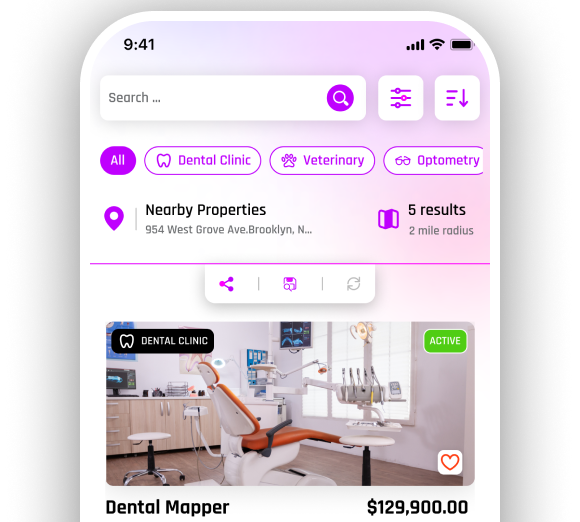Top 7 Mistakes to Avoid When Buying Your First Dental Practice

Entering the world of dental practice ownership is an exciting milestone, but it also comes with challenges that can make or break your long-term success. Many first-time buyers rush into deals without fully understanding the intricacies involved. Avoiding common pitfalls can save you time, money, and stress—and help ensure your practice investment pays off.
Whether you're browsing a dental practice for sale or deep into due diligence, the insights below will guide you toward a smarter, more secure purchase.
Understanding the High Stakes of Buying a Practice
Buying a dental practice is one of the most significant professional investments a dentist can make. It’s a decision that impacts not only your finances but also your career trajectory, work-life balance, and long-term personal satisfaction. Unlike starting a practice from scratch, acquiring an existing one means you're inheriting a complex set of assets, liabilities, and operational systems—many of which are not immediately visible during a casual walkthrough.
You're purchasing more than just equipment and a building. You're also acquiring patient goodwill, active and dormant treatment plans, insurance contracts, staff relationships, and the brand reputation built by the current owner. Each of these factors carries operational, financial, and legal implications that must be thoroughly evaluated before moving forward.
The American Dental Association (ADA) Health Policy Institute reports that only 10 to 15% of new dental graduates transition into solo practice within the first five years after graduation. This relatively low percentage reflects the high barriers to entry, including financial risk, debt from dental school, lack of business experience, and uncertainty about future earnings.
The cost of buying a dental practice can range from $300,000 to over $750,000 depending on location, patient base, and profitability. In addition to the sale price, buyers must budget for legal fees, financing costs, equipment updates, marketing for patient retention, and operational cash flow during the transition. Without proper preparation, these hidden expenses can quickly escalate.
There’s also the risk of performance drop-off during the transition period. A poorly managed handoff between the seller and buyer can result in patient attrition, staff dissatisfaction, or reduced production—all of which reduce the practice’s profitability in your crucial first year of ownership.
In a nutshell, the stakes are high. Buying a dental practice demands due diligence, strategic planning, and a deep understanding of both business and clinical realities.
Avoid These 7 Costly First-Time Buyer Mistakes
Buying a dental practice isn't just a financial transaction—it's a career-defining move. Let’s explore the most frequent missteps buyers make—and how to avoid them.
1. Skipping a Professional Valuation
One of the biggest mistakes buyers make is not seeking a professional, independent valuation of the practice. Relying solely on the seller’s asking price—or worse, gut instinct—can result in drastically overpaying.
A valuation expert will assess financial records, goodwill, patient flow, and local competition to give you a realistic purchase price. This step also protects you during practice financing discussions with lenders and banks.
2. Not Understanding the Practice’s Financial Health
Always analyze three to five years of financials. Many buyers are dazzled by high gross revenue but fail to examine net profit, overhead percentages, and recurring expenses.
Ask questions like:
-
Are hygiene production and doctor production balanced?
-
What percentage of patients are on insurance plans vs. fee-for-service?
-
What is the overhead cost compared to industry benchmarks?
A red flag in any of these areas should prompt deeper investigation before signing any agreement.
3. Overlooking Location and Demographics
Location plays a huge role in the success of your dental practice. Just because a clinic is in a busy urban area doesn’t mean it’s the right fit. Look closely at:
-
Local population growth
-
Median household income
-
Competitor saturation
If you’re buying a medical office for sale, consider how well it’s equipped for dental workflows. Poor access, limited parking, or inadequate visibility can hinder growth, regardless of how great the interior looks.
4. Failing to Assess Team Culture and Staff Retention
Your team will either support your growth or become a liability. Before purchasing, evaluate staff tenure, morale, and training levels. Retaining long-standing staff can provide continuity for patients, but only if those employees are aligned with your management style.
Ask to review:
-
Staff contracts
-
Payroll records
-
Historical turnover rates
Consider conducting discreet interviews or observations during your site visits.
5. Relying Solely on the Seller’s Word
While most sellers are honest, remember that their primary goal is to exit with the best return. Validate everything they tell you, especially regarding:
-
New patient flow
-
Existing treatment plans
-
Equipment ownership vs. leasing
Always conduct an equipment audit—whether it’s dental equipment for sale or included in the price. Outdated or non-compliant tech could add unexpected costs.
6. Ignoring Legal and Regulatory Issues
Don't overlook the importance of legal due diligence. Compliance issues, unresolved patient disputes, or expired licenses can come back to haunt you after the sale. Make sure to:
-
Review lease terms if it's a veterinary facility for sale converted into a dental office
-
Verify seller has clear title on equipment and property
-
Ensure the transition plan includes patient notification and record transfer protocols
Hire an attorney experienced in healthcare transactions—not a generalist.
7. Not Planning for Ownership Transition
A smooth transition is key to retaining patients and maintaining production levels. Too often, buyers ignore this phase until it’s too late. Agree on:
-
Whether the seller will stay for a transition period
-
How patients will be introduced
-
How collections and pending treatments will be handled
Buying a practice doesn’t guarantee success—retaining patients does.
Bonus Tip: Failing to Use the Right Broker or Platform
Many first-time buyers think they can navigate the market alone. But without access to verified listings, insider insights, and professional brokers, you might miss out on great opportunities or fall for overpriced ones.
Using tools like the PracticeFinder App allows buyers to search for curated listings—including private practices for sale, review critical details like financials and location data, and connect with experienced brokers who specialize in healthcare mergers and acquisitions.
Buy Smart, Not Fast
Purchasing your first dental practice is a big decision, but it doesn't have to be overwhelming. Avoiding these common mistakes ensures you enter ownership from a position of strength, not regret. Take your time, lean on professionals, and use resources like the PracticeFinder App to explore smart listings and connect with trusted transition partners.
Buying a practice isn’t just a transaction—it’s the launchpad for your long-term career success.
Looking for your ideal dental practice to buy?
Explore verified listings and connect with expert brokers now on the PracticeFinder App.

